
The cost of terrazzo countertops is based on several factors, including installation, materials, and size. Read on to find out what to know about pricing.
Upgrade your kitchen by choosing a countertop material that matches your style


Granite is a top choice for countertops due to its appealing look and high durability.
Engineered quartz, another popular countertop material, is more durable than granite.
Butcher block countertops require frequent and regular maintenance.
Laminate is one of the most affordable countertop materials.
If you’ve thought about remodeling your kitchen, you’ve probably given some consideration to countertops. After all, countertops aren’t just an important functional feature; they’re also a primary design element. And the many options available can make the choice seem overwhelming.
Here’s an overview of the pros and cons of five popular materials to help you choose the best countertops for your kitchen:
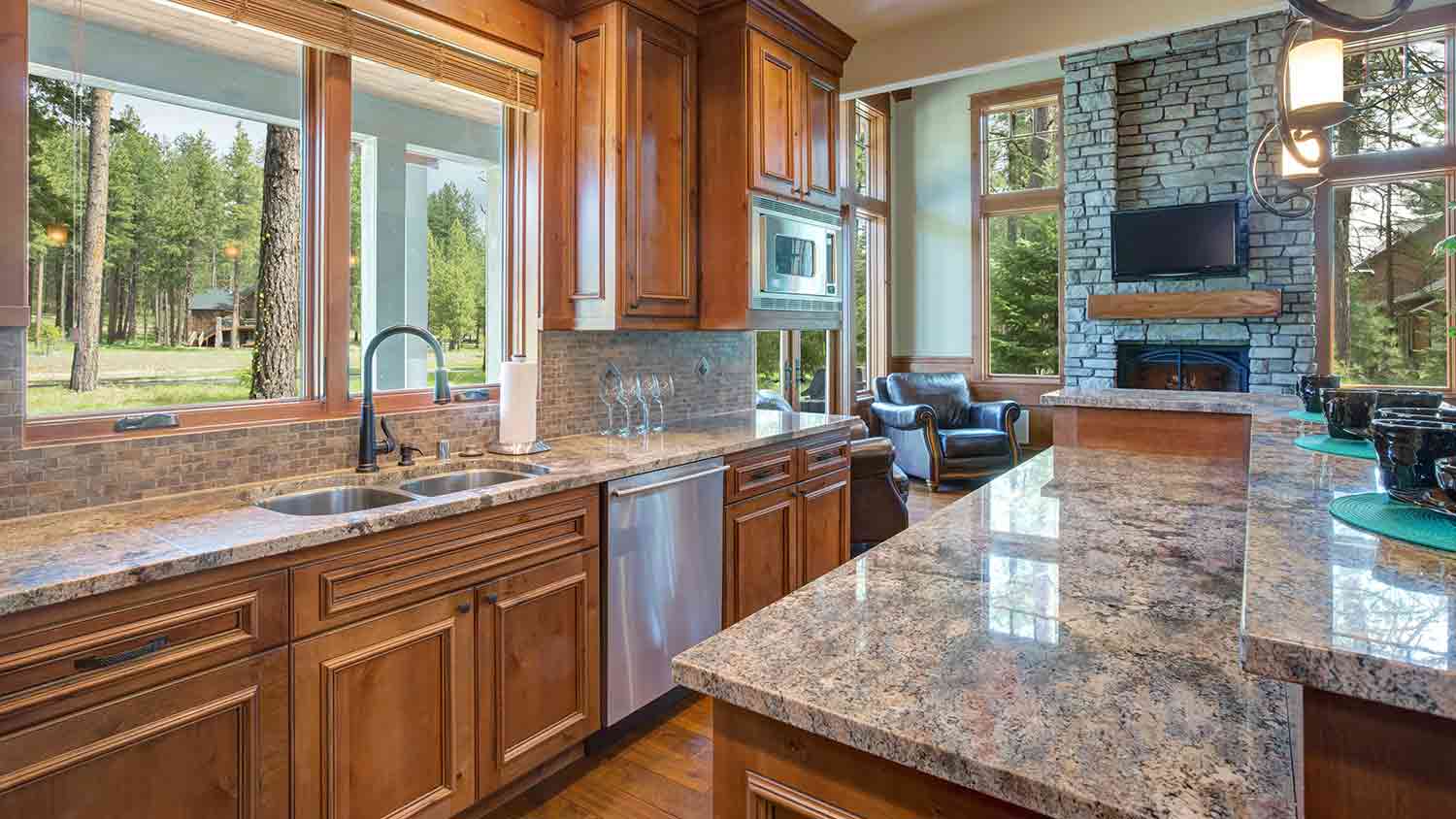
Granite: Granite has long been a top countertop material, and for good reason: It’s durable, heat-resistant, attractive and easy to clean. What’s more, granite is cut from veins of naturally occurring stone, which makes each slab entirely unique. Granite prices will run the gamut, with more exotic stones coming at a higher price. But there are many options available in a lower price range. One downside to granite is that it’s porous, so it must be sealed once a year to maintain its appearance and durability.
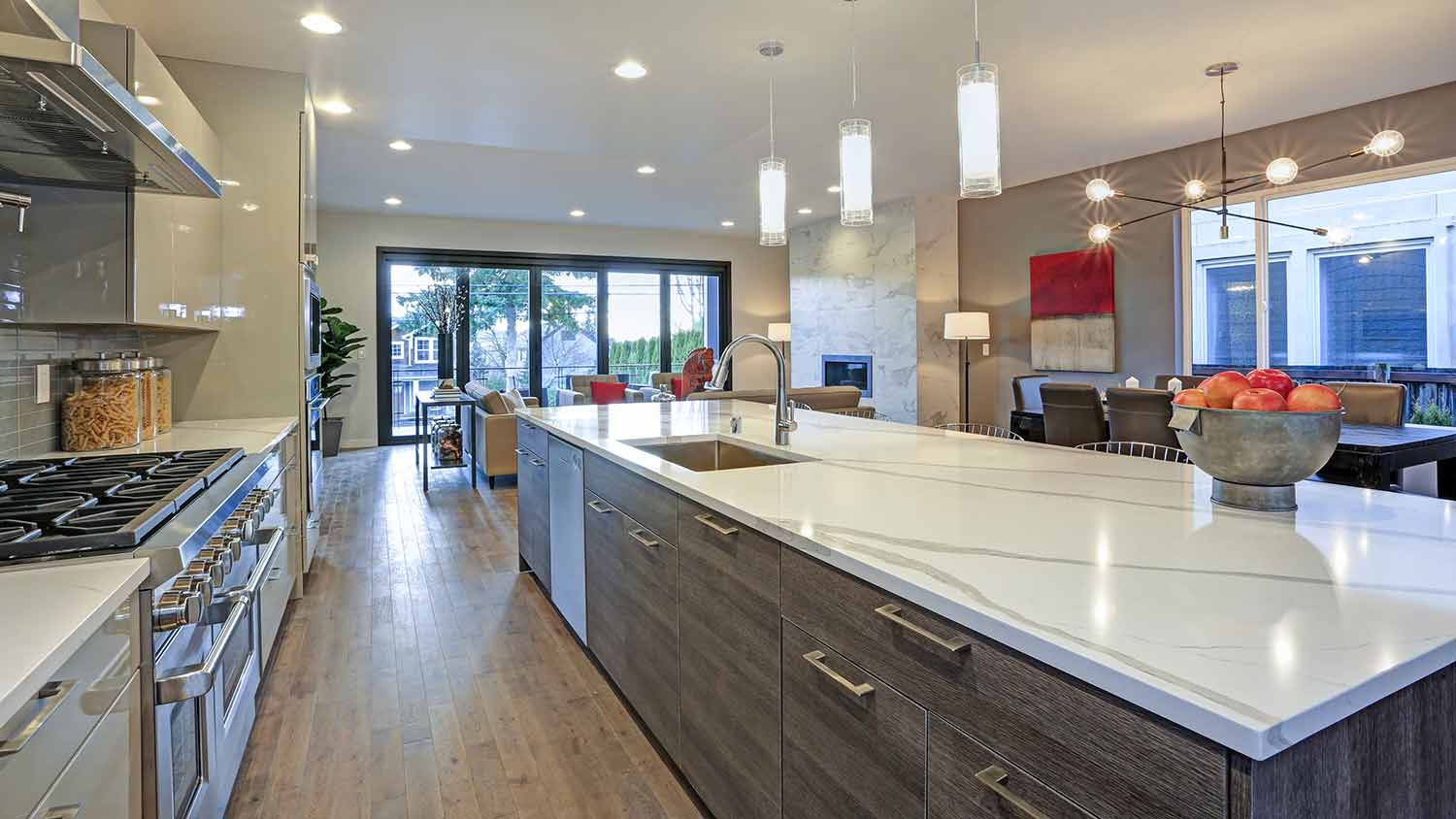
Engineered Quartz: Engineered quartz is another popular countertop material. In fact, many designers argue that it’s taken granite’s place at the top. That’s largely because it’s tougher than granite. It’s non-porous, so it’s resistant to cracking, scratching and staining. And it doesn’t require the maintenance and sealing that come with natural stone. Because the material is engineered, it comes in uniform slabs. But there are a number of attractive colors and design options available — ranging from sleek, modern monotones to traditional marble look-alikes. Engineered quartz is one of the more expensive countertop options. Typically, you’ll spend as much or more for engineered quartz countertops as you will for granite.
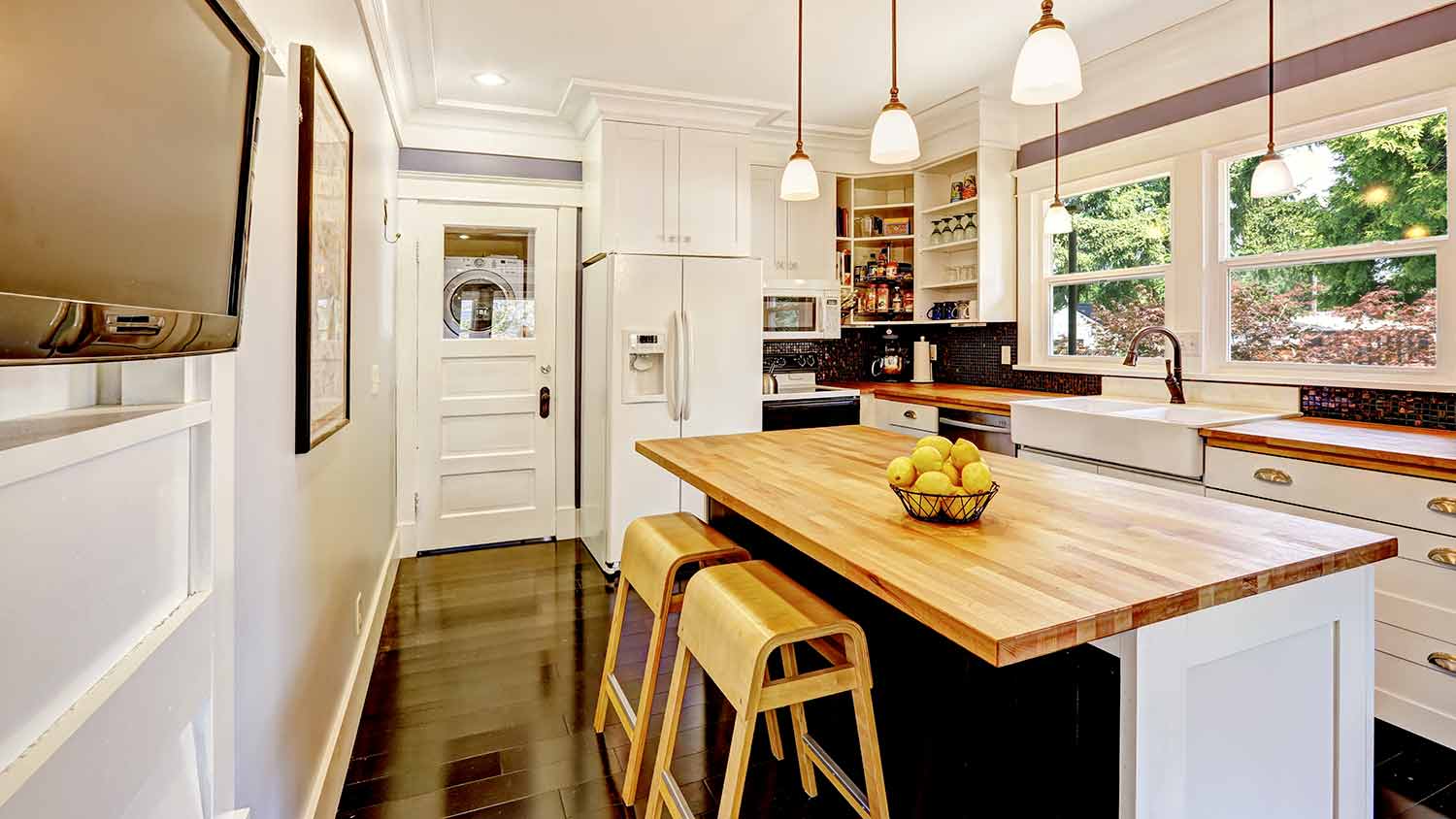
Butcher Block: Wooden butcher block countertops are not only functional and durable, but they can also add warmth and beauty to any home. The downside to wooden butcher block countertops is that they require frequent maintenance. Wood has to be sealed about once a month to prevent damage from heat and moisture, and regular wax and oil treatments will keep it looking its best. The good news is that minor damages such as scratches and small burns can typically be sanded out. Wooden butcher block countertops typically fall about mid-range in terms of pricing.
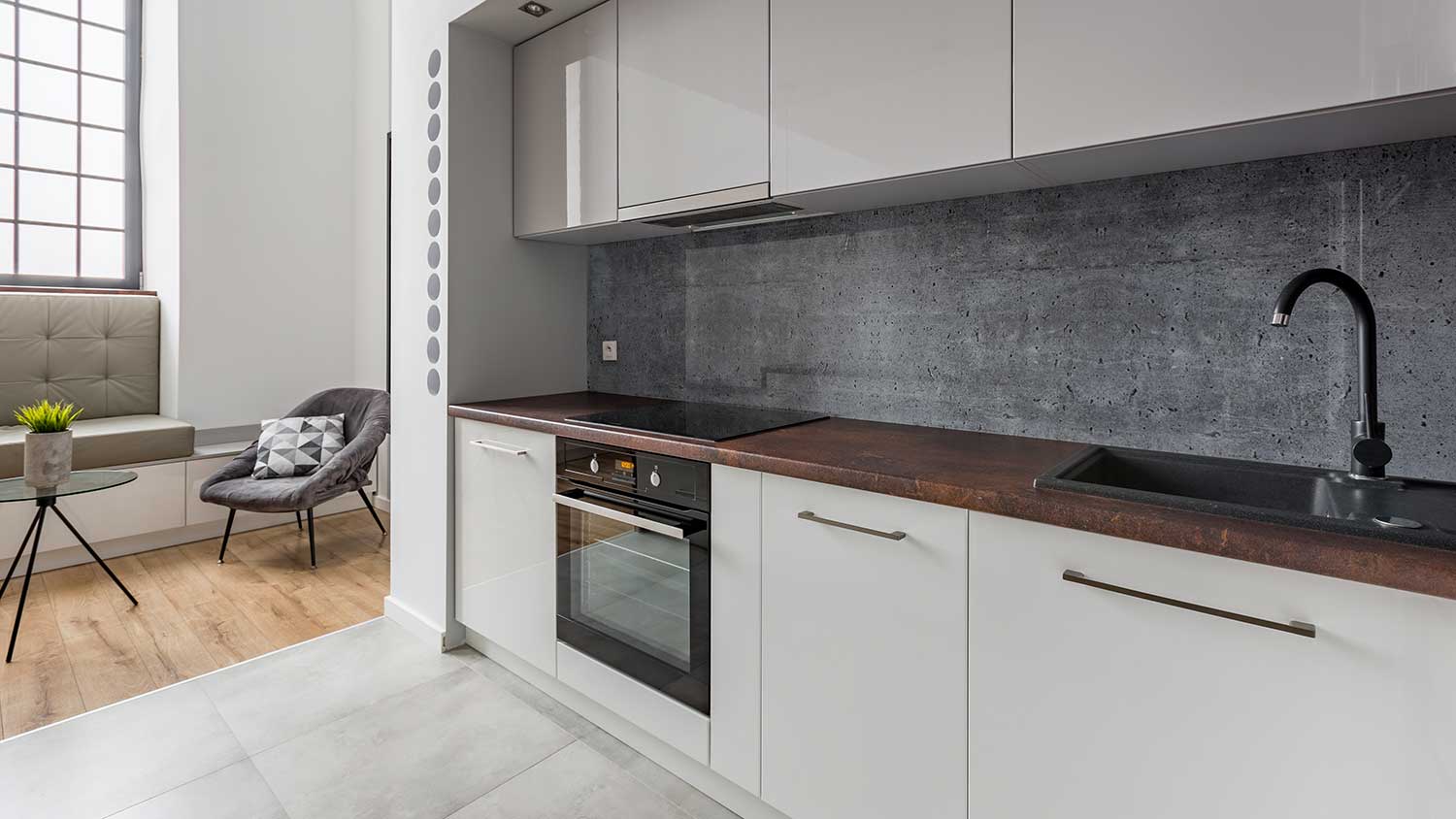
Concrete: Concrete countertops offer natural strength and heat resistance, as well as the opportunity for full customization. Not only can homeowners choose from an array of precast colors and designs, but they may also opt to include additives such as rocks, shells and colored glass to add texture or create a look all their own. Concrete countertops used to crack and chip easily, but material innovations have addressed these issues. Concrete is a good option for both modern and traditional interiors. And, like butcher block, it typically falls about mid-range in terms of pricing.
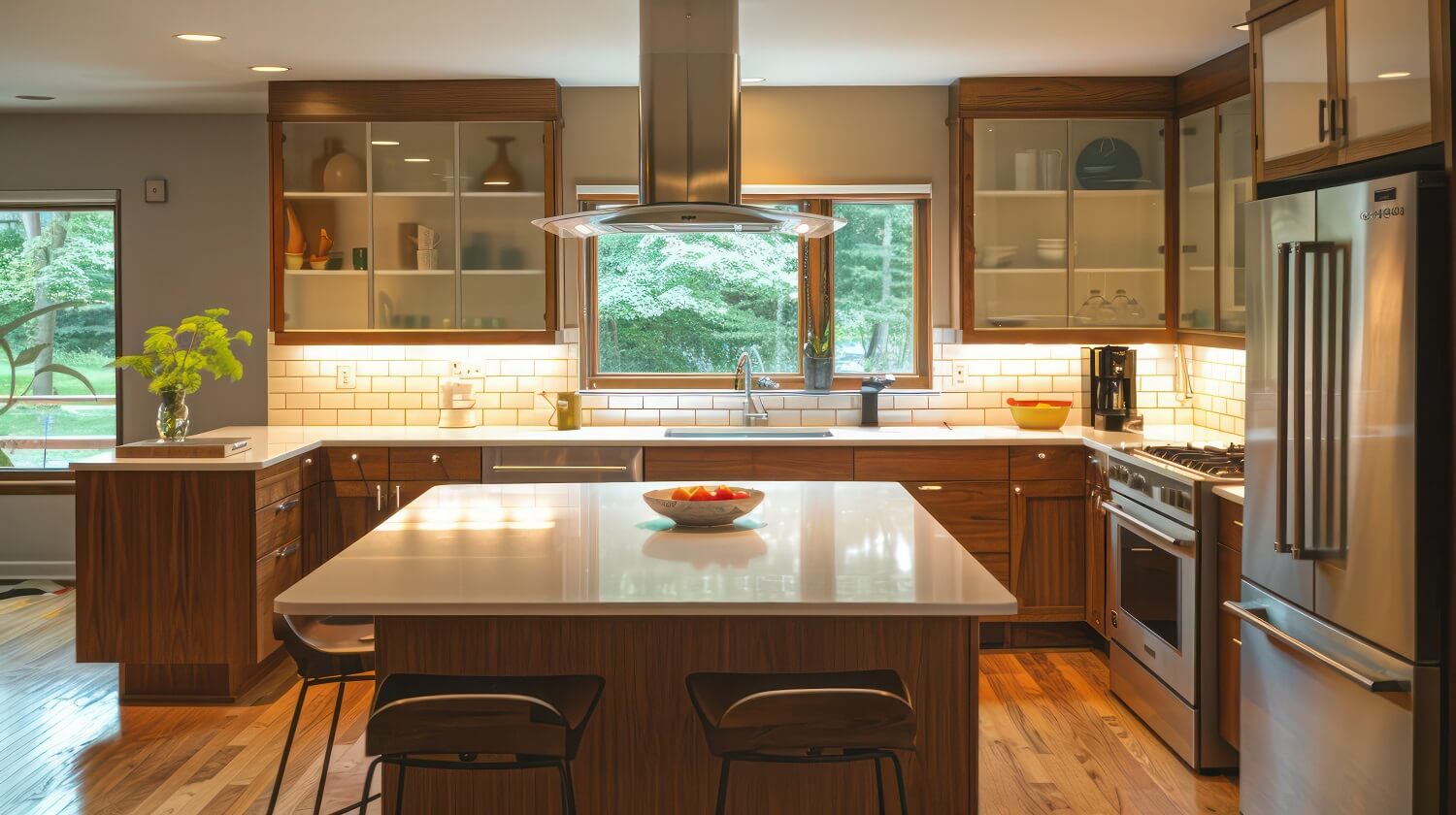
Laminate: Laminate (commonly referred to by brand name Formica) is one of the most affordable countertop materials. Generally made with paper pressed between plastic resins and bonded to particle board or plywood, laminate is durable but easily damaged. The downside to laminate is that it’s not heat or scratch resistant. The upside is that it comes in a wide range of colors and textures that mimic higher-end materials at a much lower cost. And, its price point makes it more easily replaceable than other countertop materials.
Of course, these are only a few of the countertop materials available. You may also consider options like soapstone, tile and stainless steel, for example, which all come with their own pros and cons. Ultimately, the best material for your kitchen countertop will depend on your budget, use and design preferences.
From average costs to expert advice, get all the answers you need to get your job done.

The cost of terrazzo countertops is based on several factors, including installation, materials, and size. Read on to find out what to know about pricing.

Countertop repair costs may be the deciding factor between replacing or repairing your counter. Let’s break down the cost to repair, resurface, or relaminate.

If you’re looking to refinish your countertops, epoxy will make them shine for years to come. This guide will help you budget for epoxy countertop costs.
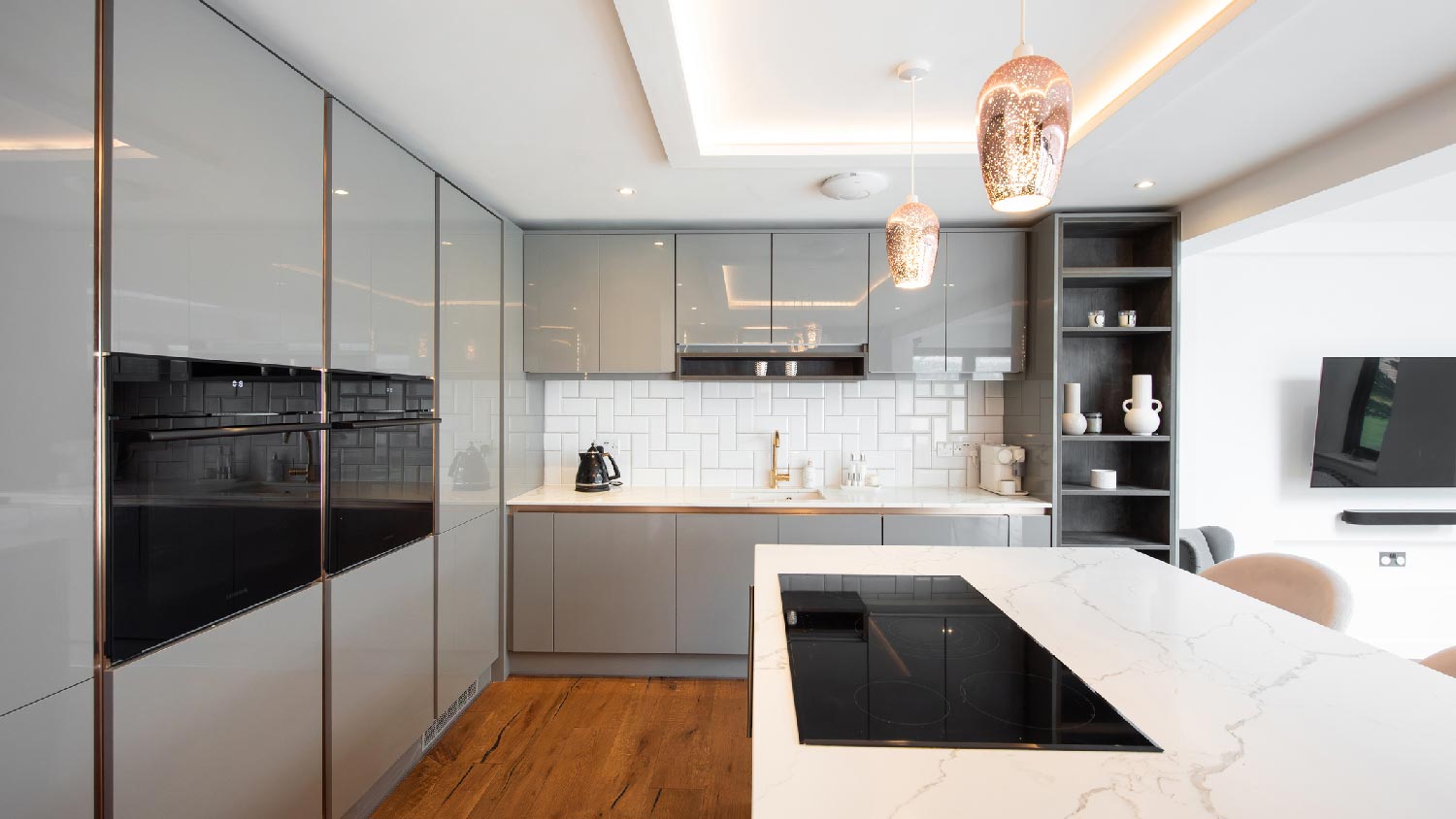
Dekton countertops are a highly durable option for your kitchen or bathroom. This guide explores key Dekton countertop cost factors such as size and color.

The right countertop material can make or break your kitchen. Learn more about laminate countertops to decide if they suit your budget and style preferences.

If you're a handy homeowner, learn how to make concrete countertops to create that contemporary kitchen character on a shoestring budget.